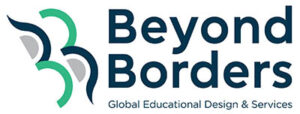Beyond Grades: Growing Minds and Hearts Together
Beyond Grades: Growing Minds and Hearts Together

Balancing Books and Being
When we talk about education today, the spotlight often falls on academics—grades, exam results, and future career skills like time management or planning. Let’s be clear: academics are essential. Children need strong literacy, numeracy, and problem-solving skills to thrive in today’s world. But here’s the challenge—when schools focus almost exclusively on academic achievement, they risk neglecting an equally vital dimension of growth: social-emotional learning (SEL).
The Hidden Gap in Education
Students may learn how to solve equations or write essays, but what about handling stress, managing conflict, communicating with compassion, or showing empathy? A child might ace a test yet feel overwhelmed by anxiety!! Another might be a brilliant planner but lacks the resilience to bounce back from failure! Or even accept loss or faults!
This gap isn’t just theoretical—it shows up in classrooms, homes, and eventually in workplaces.
Teachers often say, “We don’t have time for SEL; the curriculum is already packed.” But SEL is not an add-on; it is the soil in which academic skills take root and flourish. Without it, knowledge risks becoming shallow—useful on exams, but not in life.
Julian’s journey in The Monk Who Sold His Ferrari —a book that inspired me years ago —offers a powerful reminder that success without balance is empty.
He discovers that the mind is like a garden—if it’s filled only with weeds of stress, fear, and relentless competition, no real growth can happen. Similarly, schools that plant only academic seeds but ignore emotional well-being risk producing learners who know much but feel little peace.
Another image from the book is that of the lighthouse—standing tall to guide ships through the storm. Our values and inner compass are that lighthouse. Academics might teach a student how to build the ship and navigate the waters, but without SEL, there’s no guiding light. They may drift aimlessly, chasing achievements yet feeling unanchored.
Why This Balance Matters Now
The modern world praises productivity and efficiency, but rarely pauses to reward kindness, mindfulness, or resilience. This imbalance explains why so many young people achieve on paper but struggle with stress, loneliness, or identity. If we want children to thrive in life—not just exams—they must learn how to align their mind, heart, and body, just as Julian discovers in his journey toward harmony.
His discovery challenges us to redefine what success truly is and to contemplate the personal cost of achieving it -as defined by the modern world.
Bringing SEL Into Classrooms
The good news? SEL doesn’t require massive reforms. Small, consistent practices can transform learning: mindfulness moments before lessons, reflective journaling, role-plays that build empathy, or group projects that celebrate cooperation over competition. These practices enrich academic lessons, making learning deeper and more relevant.
The Way Forward
We don’t have to choose between academics and SEL—they are not rivals but partners. Knowledge equips students to do, while SEL empowers them to be. In a world full of deadlines and distractions, education must prepare children not only to build successful careers, but also to live meaningful, balanced lives.
So let’s start reimagining education—parents, teachers, and policymakers alike. Let’s measure success not only by grades, but also by the strength of character, the depth of empathy, and the ability to find harmony within. Only then will we raise a generation that is both smart and whole.

